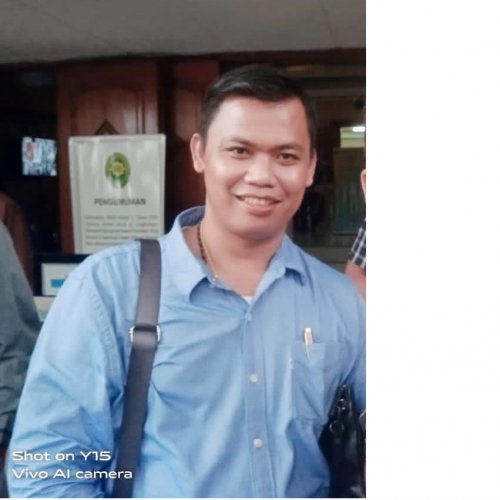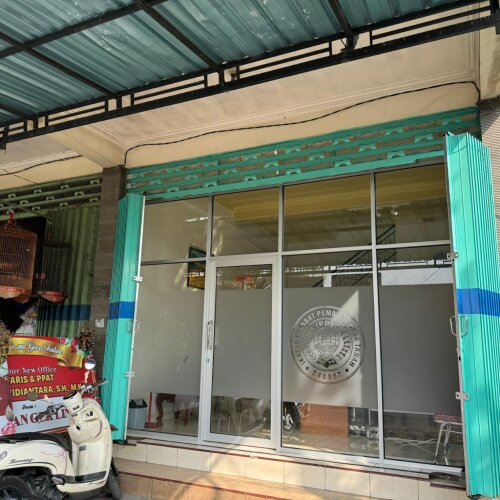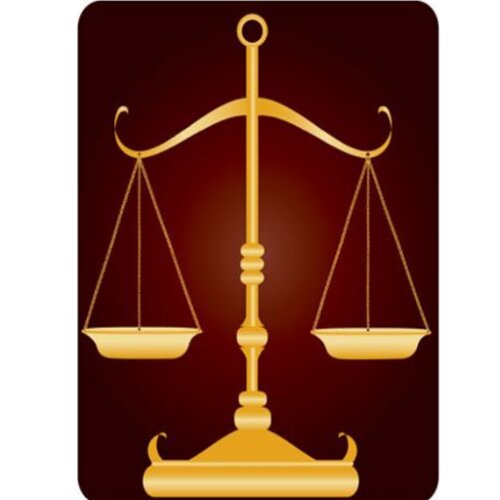Best Inheritance Law Lawyers in Indonesia
Share your needs with us, get contacted by law firms.
Free. Takes 2 min.
Or refine your search by selecting a city:
List of the best lawyers in Indonesia

Jiwangga Law Office | Lawyer Surabaya | Advokat Surabaya | Pengacara Surabaya
30 minutes Free Consultation1. About Inheritance Law in Indonesia
Inheritance law in Indonesia determines how a deceased person’s assets are distributed among heirs. The system is a mix of Islamic law for Muslims and civil law for non Muslims. For Muslims, matters fall under Islamic inheritance principles known as faraid and are handled by the Religious Courts (Pengadilan Agama). For non Muslims, inheritance generally follows the Civil Code framework governing intestate succession and wills.
Key concepts you will encounter include wasiyyah (a will or bequest) that can allocate up to one third of the estate, and fixed shares for certain heirs under faraid. Assets that may be involved include real property, bank accounts, investments, and movable property. In practice, inheritance cases often require court intervention to inventory assets, resolve disputes among heirs, and issue documents such as probate or letters of administration.
In Indonesia, the admissibility and distribution of an estate can depend on the decedent’s religion, the location of assets, and whether a will exists. In Muslim cases, the distribution follows Islamic law as applied through the Peradilan Agama; in other cases, the distribution follows civil law rules. Understanding which regime applies is essential to determine if a case should be filed in a Religious Court or a Civil Court.
In Indonesia, inheritance matters for Muslims are governed by Islamic inheritance rules and resolved in the Religious Courts under the law framework of Peradilan Agama.
Source: Government regulation portal peraturan.go.id
2. Why You May Need a Lawyer
Working with an experienced inheritance lawyer can prevent delays and costly disputes. Here are concrete scenarios where legal counsel is essential in Indonesia.
- Disputes over fixed shares in a Muslim family: A widow, two children, and a parent all claim a share after the decedent dies without a clear will. Without counsel, unequal distribution or misinterpretation of faraid can trigger lengthy court battles.
- Challenging or validating a wasiyyah: A decedent leaves a will that attempts to disinherit a rightful heir or exceeds the one third limit. A lawyer helps verify compliance with Islamic law and civil law requirements.
- Real property across multiple jurisdictions: Real estate in Jakarta and Surabaya may involve different local land registries and inheritance procedures. A solicitor coordinates filings in the correct forum and ensures assets are properly inventoried.
- Guardianship and management for minor heirs: If heirs include minors, a lawyer helps appoint guardians and set up stable management of estate assets for the child’s benefit.
- Probate and executor appointments for non Muslims: When no will exists, an administrator must be appointed to collect debts, pay taxes, and distribute assets under civil law rules.
- Cross-border or mixed religious context: Inheritance matters involving assets held by family members of different religions may require careful navigation between Peradilan Agama and Civil Court processes.
3. Local Laws Overview
Indonesia regulates inheritance through specific laws and court structures. The main legal instruments include the Religious Court framework for Muslims, and civil law for others. Recent changes to these frameworks focus on clarifying jurisdiction and ensuring proper administration of estates.
Undang-Undang Nomor 7 Tahun 1989 tentang Peradilan Agama
This law governs the administration of religious courts, including inheritance matters for Muslims. It defines the jurisdiction of the Peradilan Agama and the types of cases those courts may hear. The law has been in effect since its enactment and forms the backbone for Islamic estate distribution.
Undang-Undang Nomor 3 Tahun 2006 tentang Perubahan atas UU No. 7 Tahun 1989 tentang Peradilan Agama
This amendment clarifies and expands certain provisions of the Peradilan Agama, affecting procedures, appeals, and case management in inheritance matters under Islamic law. The changes are generally described as strengthening the religious court framework for personal status matters, including estates.
Kitab Undang-Undang Hukum Perdata (KUH Perdata) / Civil Code framework for non Muslims
For non Muslims and for matters outside Islamic law, Indonesia relies on civil law provisions governing inheritance, including intestate succession and the validity of wills. The Civil Code provides the general rules for how estates are distributed when there is no applicable Islamic will or fixed shares under faraid.
4. Frequently Asked Questions
These questions cover procedural, definitional, cost, timeline, qualification, and comparison topics. They are written to be helpful for beginners and for people with some knowledge of inheritance law in Indonesia.
What is inheritance law in Indonesia?
Inheritance law determines how a deceased person s assets are distributed among heirs. It differs for Muslims and non Muslims, with Islamic rules handled by the Religious Courts and civil law rules used for others.
How do I start an inheritance case in Indonesia?
Begin by identifying the relevant forum-Peradilan Agama for Muslims or civil courts for others. Gather the decedent s documents, asset lists, and any wills or testamentary documents.
When can a wasiyyah be made and how much can it cover?
A wasiyyah can allocate up to one third of the estate. The remaining two thirds follow default inheritance shares under Islamic law for Muslims, or civil law for non Muslims.
Where should I file if there are assets in more than one province?
File in the forum that has jurisdiction over the principal assets or where the deceased primarily resided. You may need to coordinate multiple filings with counsel.
Why do I need a lawyer for faraid distributions?
A lawyer helps interpret fixed shares, protect rights of obligatory heirs, and resolve disputes efficiently. Without counsel, disputes can last months or years and create tax or debt issues for the estate.
Do I need to be Muslim or live in Indonesia to pursue an inheritance case?
Religion determines the forum for Muslims (Peradilan Agama) or non Muslims (Civil Court). Citizenship is not the sole determinant; the decedent s religion and the assets location matter more for forum selection.
Should I expect court durations to be long or short?
Durations vary widely. A simple case may take several months, while complex disputes can take one to two years or more, depending on evidence and heir conflicts.
Do I need a lawyer to review a will or wasiyyah?
Yes. A lawyer ensures the document complies with relevant rules and does not violate mandatory shares or civil law requirements. This reduces the risk of later disputes.
Is there a difference between wasiyyah and a will for heirs?
Wasiyyah is a bequest at most one third of the estate, intended to benefit individuals other than obligatory heirs. A general will can allocate assets more freely but may be limited by religious rules for Muslims.
How much do inheritance lawyers typically charge in Indonesia?
Fees vary by complexity and location. Expect consultation charges plus a percentage of the estate value or fixed fees for specific tasks such as filing or drafting pleadings.
What happens if a will is contested by an heir?
The court will review the will for compliance with law and the rights of obligatory heirs. If invalid, the estate distributes according to applicable shares under the appropriate regime.
5. Additional Resources
Access official sources to verify laws and procedures. These organizations provide guidance, forms, and up to date regulations relevant to inheritance matters.
- Peraturan.go.id - Official portal for Indonesian regulations including laws on inheritance and the Peradilan Agama. https://peraturan.go.id
- Kementerian Agama Republik Indonesia (Kemenag) - Government ministry overseeing religious affairs and guidance on Islamic inheritance rules and Peradilan Agama.
- Mahkamah Agung Republik Indonesia (MA RI) - Supreme Court information and guidance about court procedures, including Peradilan Agama and civil court matters. https://www.mahkamahagung.go.id
6. Next Steps
- Collect all relevant documents: death certificate, asset deeds, bank statements, outstanding debts, and any will or wasiyyah documents. Do this within 1-2 weeks of learning about the case.
- Identify the applicable regime: determine if the case falls under Islamic inheritance (Muslim) or civil law (non Muslims) to decide the correct forum.
- Consult a qualified inheritance lawyer (solicitor or attorney) with experience in Indonesian Peradilan Agama or civil probate matters. Arrange an initial consultation within 2-3 weeks.
- Review the estate plan and claims with your lawyer to assess shares, potential wasiyyah, and any disputes among heirs. Create a written list of questions for the first meeting.
- File the case in the appropriate forum and prepare pleadings, inventories, and asset lists in collaboration with your attorney. Allow 1-2 months for preparation and filing.
- Request court dates and anticipate a timeline: a simple case may resolve in 6-12 months; complex matters can extend beyond 12 months.
- Monitor progress with your attorney and respond promptly to court requests for documents or witnesses. Maintain organized records to prevent delays.
Lawzana helps you find the best lawyers and law firms in Indonesia through a curated and pre-screened list of qualified legal professionals. Our platform offers rankings and detailed profiles of attorneys and law firms, allowing you to compare based on practice areas, including Inheritance Law, experience, and client feedback.
Each profile includes a description of the firm's areas of practice, client reviews, team members and partners, year of establishment, spoken languages, office locations, contact information, social media presence, and any published articles or resources. Most firms on our platform speak English and are experienced in both local and international legal matters.
Get a quote from top-rated law firms in Indonesia — quickly, securely, and without unnecessary hassle.
Disclaimer:
The information provided on this page is for general informational purposes only and does not constitute legal advice. While we strive to ensure the accuracy and relevance of the content, legal information may change over time, and interpretations of the law can vary. You should always consult with a qualified legal professional for advice specific to your situation.
We disclaim all liability for actions taken or not taken based on the content of this page. If you believe any information is incorrect or outdated, please contact us, and we will review and update it where appropriate.
Browse inheritance law law firms by city in Indonesia
Refine your search by selecting a city.















